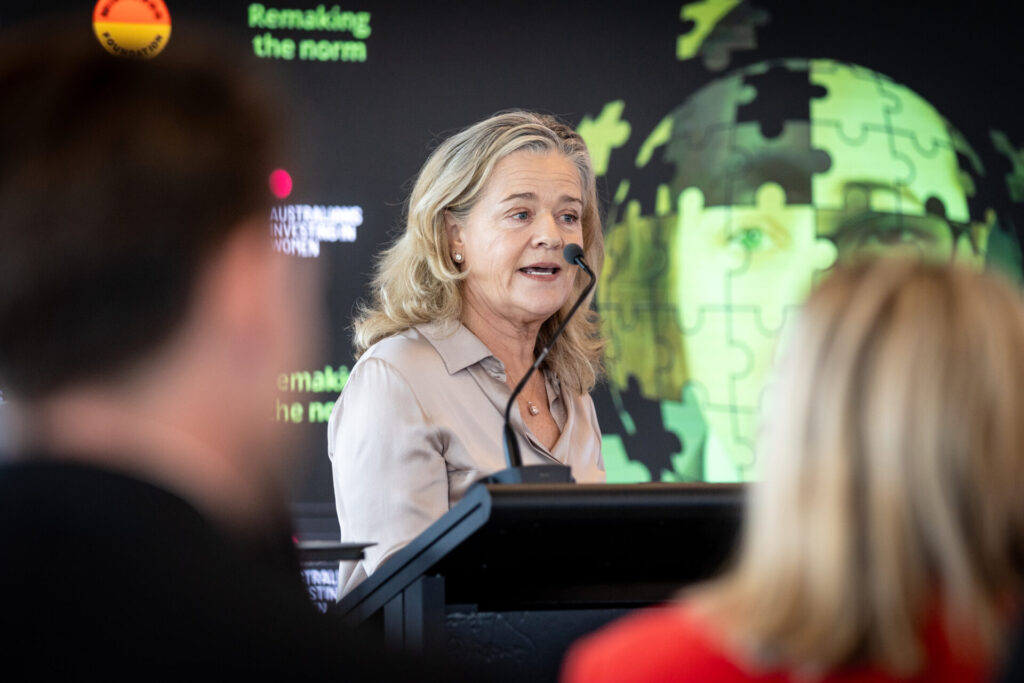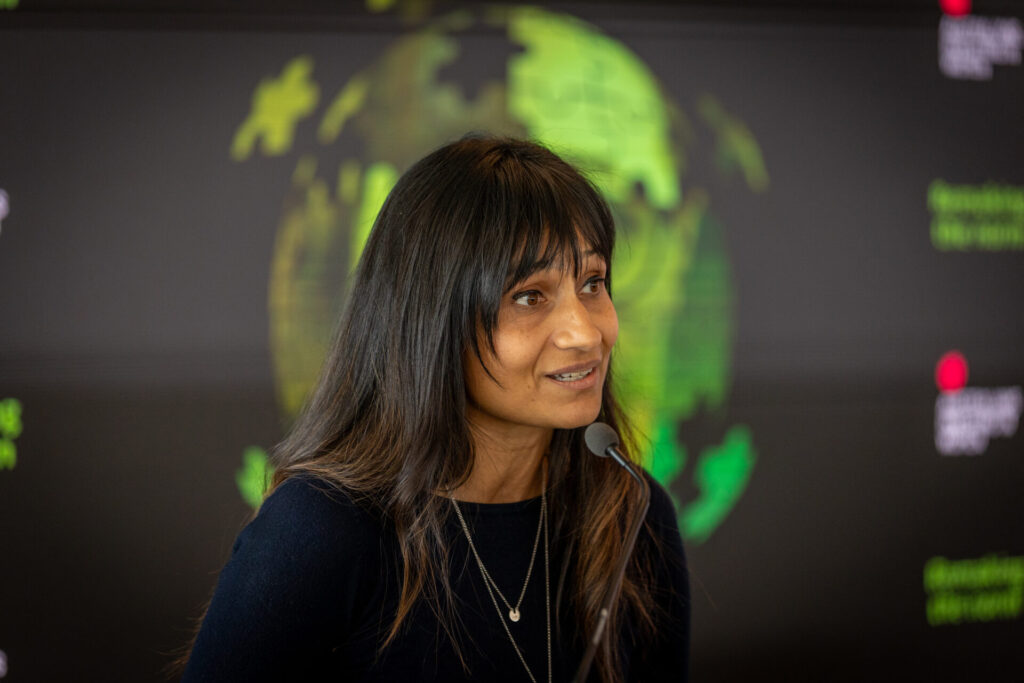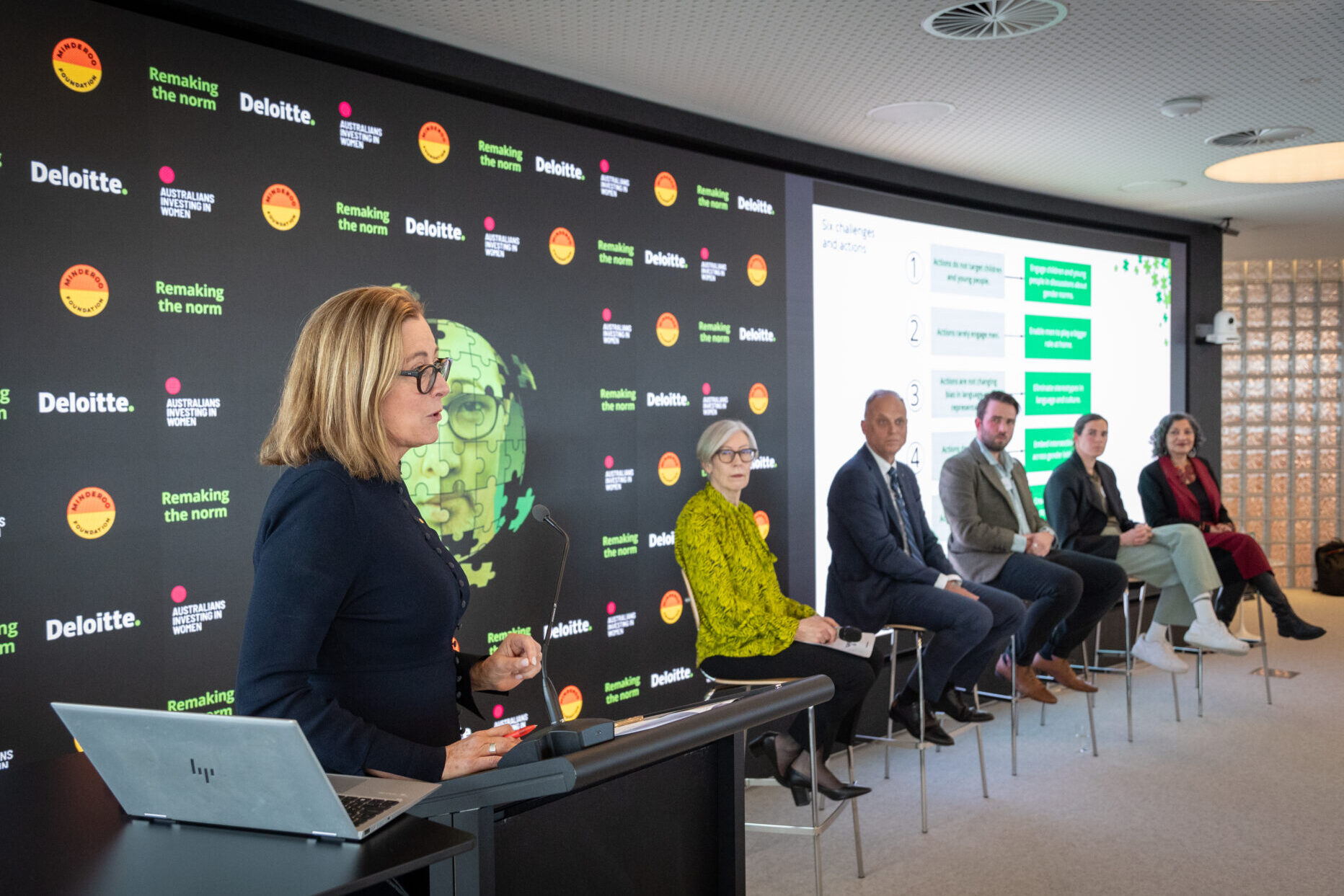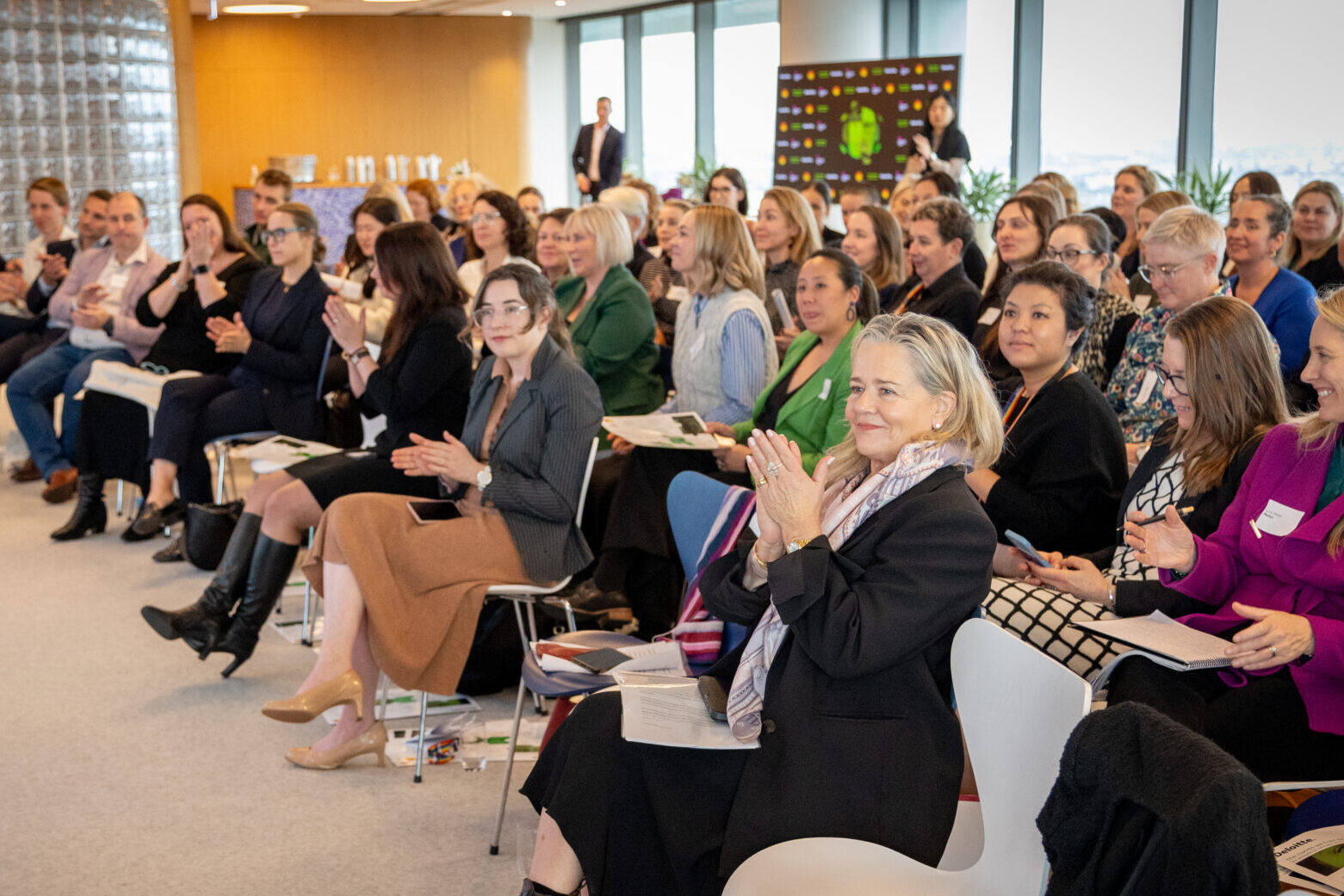Six harmful ‘gender norms’ identified as key levers for meaningful change, says Deloitte report

‘Remaking the norm’, a new report by Deloitte Access Economics in collaboration with Australians Investing In Women (AIIW) and Minderoo Foundation, was launched this week and demonstrates that gender equality progress will remain stagnant unless all sectors of society collectively address the root cause of inequity: harmful gender norms.
Following a warm, witty Welcome to Country by Aunty Joan Bell, Nicola Forrest AO, Founder of Minderoo Foundation, opened the event, congratulating the contributors to the report, but lamenting the need for its existence. “All of us here today must take a moment and reflect on the awful reality that a report like this is still needed at all.
“Gender inequality is a global crisis. This is a global crisis and a local crisis, and quite simply, the gender gap is closing far too slowly,” she said.
Nicola highlighted that 35 women have died due to horrific gender-based violence already this year in Australia, adding: “We all know too well that gender inequality perpetuates violence toward women, and until we have equality, women will continue to be harmed or killed.”
She said that systemic shifts were needed to remake unhealthy gender norms, and that everyone had a responsibility for gender equality to become a reality – “from corporate Australia and government to civil society and philanthropy”.

“Investing in women and girls creates stronger economies, flourishing communities and greater global prosperity,” said Nicola. “I’m proud that the Minderoo Foundation is stepping up to support the many excellent organisations championing gender equality change and reform. Now is the time to actively redesign the systems and remake the norms truly, fairly and equally,” she said.
The findings of ‘Remaking the norm’ build on a 2022 report, ‘Breaking the norm’, in which Deloitte Access Economics found that breaking gender norms could boost the Australian economy by $128 billion annually. That report provided key data that underpinned the recommendations of the Women’s Economic Equality Taskforce led by AIIW’s former chair, Sam Mostyn AC, and informed policy and budget decisions strengthening investment in women.
This new report also includes research into the equality-based attitudes and behaviours of corporate Australia. It outlines how society can dismantle bias and stereotypes through practical policy recommendations and learnings from successful change initiatives and actions.
Keynote speaker Padma Raman, Executive Director of the Office for Women, Department of the Prime Minister and Cabinet, highlighted that the government had launched its gender strategy – Working for Women – earlier this year, and that stereotypes were at the heart of inequality.
Deloitte Access Economics Partner, Sruthi Srikanthan and manager Evie Fox Koob presented the research findings, describing the six areas of challenge – and recommended actions in more detail.
The six key actions for governments, business, philanthropy and community groups are:
- Engage children and young people in discussions about gender norms
- Enable men to play a bigger role at home
- Eliminate stereotypes in language and culture
- Embed intersectionality across gender initiatives
- Create accountable and transparent institutions
- Create structured processes to reduce embedded bias.

Underpinning these actions is a comprehensive review of key industry research and action plans, as well as data gathered through a survey of more than 200 Australian CEOs, executives, directors and managers.
Despite perceived progress on gender equity, the report’s research also shows that a concerning number of Australians still hold rigid and outdated gender views, with one in four Australians surveyed believing children do not do as well if the father stays at home and the mother is the breadwinner in a relationship.
Findings revealed that only 55% of employers acknowledge that gender discrimination contributes to female leadership numbers – indicating that many businesses aren’t equipped with the knowledge to meaningfully reduce bias and remove barriers to inclusivity.

Sruthi Srikanthan said: “Gender norms constrain the ability of women to participate in the economy and in society as equals, driving outcome gaps between men and woman from hourly pay and labour force participation to the share of domestic labour performed.
“Society has made many attempts to address this disadvantage, but reactive interventions need to be complemented by actions that seek to shift the underlying beliefs we hold about women that ultimately cause those gaps to persist.
“There is a significant economic and social opportunity to dismantling harmful gender norms, to the benefit of not just women, but men and children too. Now is the time for enduring impact,” she said.
Following the presentation of findings a panel discussion moderated by journalist and author Catherine Fox AM considered real world examples where gender norms were being successfully transformed.
The panel included Padma Raman, Executive Director of the Office for Women, Department of the Prime Minister and Cabinet, Lydia Williams, Matilda, proud Noongar woman, member of the Professional Footballers Association (PFA) and children’s book author; Drew Hanger, Senior Educator and Coordinator at The Men’s Project of Jesuit Social Services; and Scott Wyatt, CEO of Viva Energy, which has attracted praise for its programs to increase female participation in its workforce.

Each panellist reflected on the ways their actions and leadership supported creating a more fair and gender-equal future for their colleagues and the community. Lydia shared details the Matildas team took taking a stand for better, fairer pay and working conditions. Scott spoke about his legacy as a leader and his pride in facilitating re-training and diversifying his organisation’s workforce to provide opportunities for women and gender equality. Drew responded to questions from the audience on ways to support young men resist the charms of online influencers and why they are seeking such role models.
Closing the event, Julie Reilly OAM, CEO of Australians Investing In Women said: “Business, government, community leaders and philanthropists have a duty to honestly examine their gender equity efforts to determine whether they are doing enough to meaningfully address the gender norms that underpin inequity.
“Addressing gender norms is critical to all systems change. We invite the social sector to review this new report’s six actions to ‘remake the norm’ and to help unleash Australia’s economic potential and improve outcomes for all Australians.”
